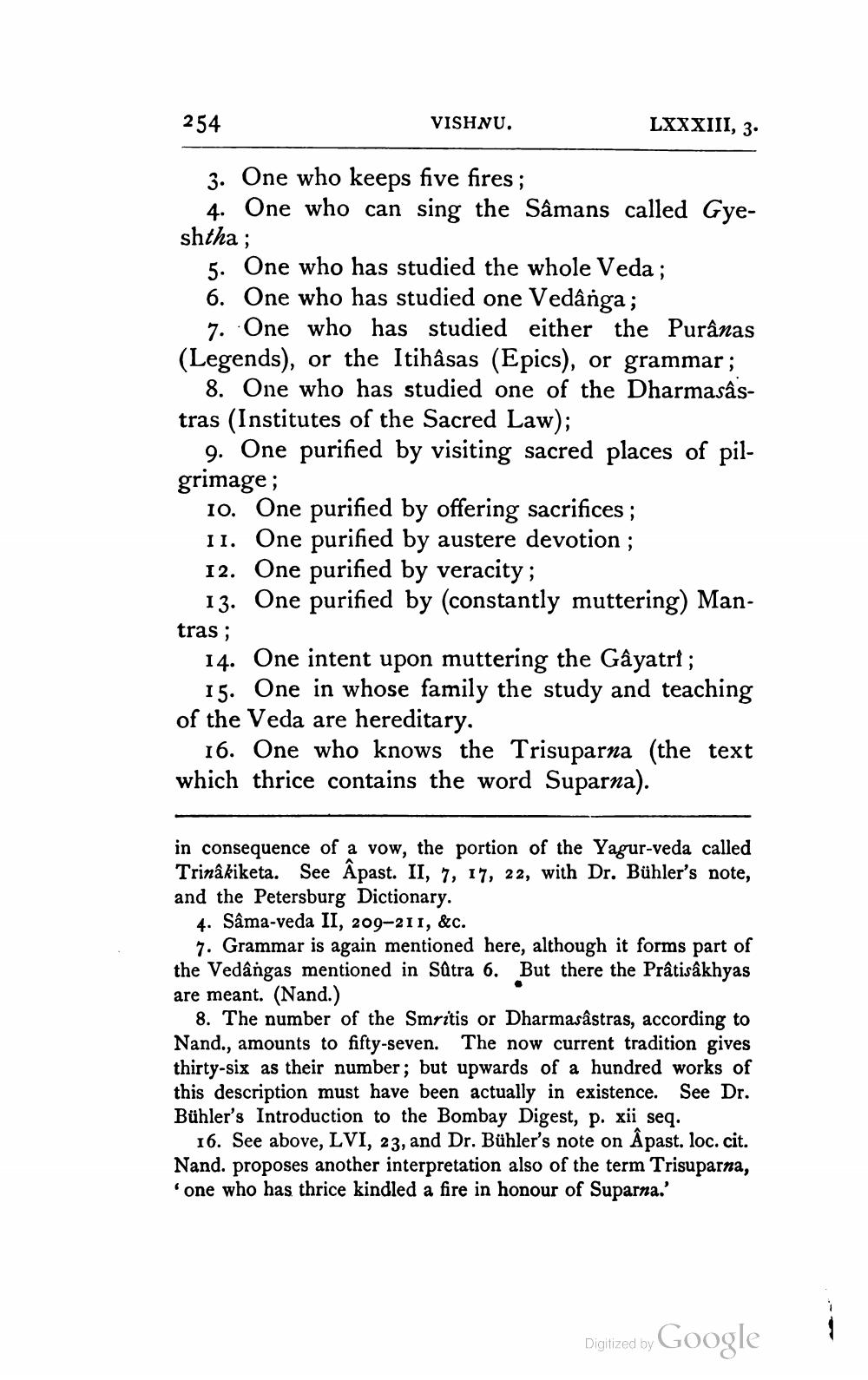________________
254
VISHNU.
LXXXIII, 3.
3. One who keeps five fires ;
4. One who can sing the Sâmans called Gyeshtha;
5. One who has studied the whole Veda ; 6. One who has studied one Vedânga;
7. One who has studied either the Puranas (Legends), or the Itihâsas (Epics), or grammar;
8. One who has studied one of the Dharmasâstras (Institutes of the Sacred Law);
9. One purified by visiting sacred places of pilgrimage;
10. One purified by offering sacrifices; 11. One purified by austere devotion ; 12. One purified by veracity;
13. One purified by (constantly muttering) Mantras;
14. One intent upon muttering the Gâyatri ;
15. One in whose family the study and teaching of the Veda are hereditary,
16. One who knows the Trisuparna (the text which thrice contains the word Suparna).
in consequence of a vow, the portion of the Yagur-veda called Trinâkiketa. See Âpast. II, 7, 17, 22, with Dr. Bühler's note, and the Petersburg Dictionary.
4. Sâma-veda II, 209-211, &c.
7. Grammar is again mentioned here, although it forms part of the Vedângas mentioned in Sätra 6. But there the Prâtisakhyas are meant. (Nand.)
8. The number of the Smritis or Dharmasastras, according to Nand., amounts to fifty-seven. The now current tradition gives thirty-six as their number; but upwards of a hundred works of this description must have been actually in existence. See Dr. Bühler's Introduction to the Bombay Digest, p. xii seq.
16. See above, LVI, 23, and Dr. Bühler's note on Åpast. loc. cit. Nand. proposes another interpretation also of the term Trisuparna,
one who has thrice kindled a fire in honour of Suparna.'
Digitized by Google
1
Digitized by




